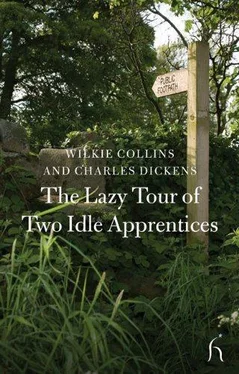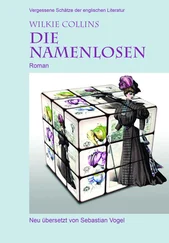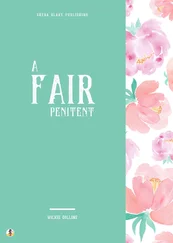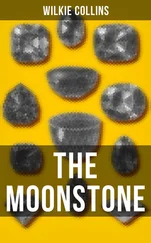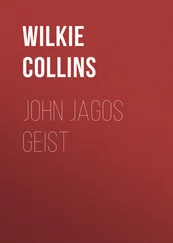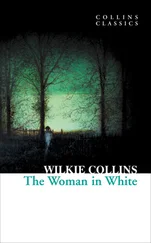Wilkie Collins - The Lazy Tour of Two Idle Apprentices
Здесь есть возможность читать онлайн «Wilkie Collins - The Lazy Tour of Two Idle Apprentices» весь текст электронной книги совершенно бесплатно (целиком полную версию без сокращений). В некоторых случаях можно слушать аудио, скачать через торрент в формате fb2 и присутствует краткое содержание. Жанр: Классическая проза, на английском языке. Описание произведения, (предисловие) а так же отзывы посетителей доступны на портале библиотеки ЛибКат.
- Название:The Lazy Tour of Two Idle Apprentices
- Автор:
- Жанр:
- Год:неизвестен
- ISBN:нет данных
- Рейтинг книги:5 / 5. Голосов: 1
-
Избранное:Добавить в избранное
- Отзывы:
-
Ваша оценка:
- 100
- 1
- 2
- 3
- 4
- 5
The Lazy Tour of Two Idle Apprentices: краткое содержание, описание и аннотация
Предлагаем к чтению аннотацию, описание, краткое содержание или предисловие (зависит от того, что написал сам автор книги «The Lazy Tour of Two Idle Apprentices»). Если вы не нашли необходимую информацию о книге — напишите в комментариях, мы постараемся отыскать её.
The Lazy Tour of Two Idle Apprentices — читать онлайн бесплатно полную книгу (весь текст) целиком
Ниже представлен текст книги, разбитый по страницам. Система сохранения места последней прочитанной страницы, позволяет с удобством читать онлайн бесплатно книгу «The Lazy Tour of Two Idle Apprentices», без необходимости каждый раз заново искать на чём Вы остановились. Поставьте закладку, и сможете в любой момент перейти на страницу, на которой закончили чтение.
Интервал:
Закладка:
‘However, he turned his Money over and over, and still over. He was in the dark trade, the gold-dust trade, and most secret trades that yielded great returns. In ten years, he had turned his Money over, so many times, that the traders and shippers who had dealings with him, absolutely did not lie—for once—when they declared that he had increased his fortune, Twelve Hundred Per Cent.
‘He possessed his riches one hundred years ago, when people could be lost easily. He had heard who the youth was, from hearing of the search that was made after him; but, it died away, and the youth was forgotten.
‘The annual round of changes in the tree had been repeated ten times since the night of the burial at its foot, when there was a great thunder-storm over this place. It broke at midnight, and roared until morning. The first intelligence he heard from his old serving-man that morning, was, that the tree had been struck by Lightning.
‘It had been riven down the stem, in a very surprising manner, and the stem lay in two blighted shafts: one resting against the house, and one against a portion of the old red garden-wall in which its fall had made a gap. The fissure went down the tree to a little above the earth, and there stopped. There was great curiosity to see the tree, and, with most of his former fears revived, he sat in his arbour—grown quite an old man—watching the people who came to see it.
‘They quickly began to come, in such dangerous numbers, that he closed his garden-gate and refused to admit any more. But, there were certain men of science who travelled from a distance to examine the tree, and, in an evil hour, he let them in!—Blight and Murrain on them, let them in!
‘They wanted to dig up the ruin by the roots, and closely examine it, and the earth about it. Never, while he lived! They offered money for it. They! Men of science, whom he could have bought by the gross, with a scratch of his pen! He showed them the garden-gate again, and locked and barred it.
‘But they were bent on doing what they wanted to do, and they bribed the old serving-man—a thankless wretch who regularly complained when he received his wages, of being underpaid—and they stole into the garden by night with their lanterns, picks, and shovels, and fell to at the tree. He was lying in a turret-room on the other side of the house (the Bride’s Chamber had been unoccupied ever since), but he soon dreamed of picks and shovels, and got up.
‘He came to an upper window on that side, whence he could see their lanterns, and them, and the loose earth in a heap which he had himself disturbed and put back, when it was last turned to the air. It was found! They had that minute lighted on it. They were all bending over it. One of them said, “The skull is fractured;” and another, “See here the bones;” and another, “See here the clothes;” and then the first struck in again, and said, “A rusty bill-hook!”
‘He became sensible, next day, that he was already put under a strict watch, and that he could go nowhere without being followed. Before a week was out, he was taken and laid in hold. The circumstances were gradually pieced together against him, with a desperate malignity, and an appalling ingenuity. But, see the justice of men, and how it was extended to him! He was further accused of having poisoned that girl in the Bride’s Chamber. He, who had carefully and expressly avoided imperilling a hair of his head for her, and who had seen her die of her own incapacity!
‘There was doubt for which of the two murders he should be first tried; but, the real one was chosen, and he was found Guilty, and cast for death. Bloodthirsty wretches! They would have made him Guilty of anything, so set they were upon having his life.
‘His money could do nothing to save him, and he was hanged. I am He, and I was hanged at Lancaster Castle with my face to the wall, a hundred years ago!’
At this terrific announcement, Mr. Goodchild tried to rise and cry out. But, the two fiery lines extending from the old man’s eyes to his own, kept him down, and he could not utter a sound. His sense of hearing, however, was acute, and he could hear the clock strike Two. No sooner had he heard the clock strike Two, than he saw before him Two old men!
TWO.
The eyes of each, connected with his eyes by two films of fire: each, exactly like the other: each, addressing him at precisely one and the same instant: each, gnashing the same teeth in the same head, with the same twitched nostril above them, and the same suffused expression around it. Two old men. Differing in nothing, equally distinct to the sight, the copy no fainter than the original, the second as real as the first.
‘At what time,’ said the Two old men, ‘did you arrive at the door below?’
‘At Six.’
‘And there were Six old men upon the stairs!’
Mr. Goodchild having wiped the perspiration from his brow, or tried to do it, the Two old men proceeded in one voice, and in the singular number:
‘I had been anatomised, but had not yet had my skeleton put together and re-hung on an iron hook, when it began to be whispered that the Bride’s Chamber was haunted. It was haunted, and I was there.
‘ We were there. She and I were there. I, in the chair upon the hearth; she, a white wreck again, trailing itself towards me on the floor. But, I was the speaker no more, and the one word that she said to me from midnight until dawn was, ‘Live!’
‘The youth was there, likewise. In the tree outside the window. Coming and going in the moonlight, as the tree bent and gave. He has, ever since, been there, peeping in at me in my torment; revealing to me by snatches, in the pale lights and slatey shadows where he comes and goes, bare-headed—a bill-hook, standing edgewise in his hair.
‘In the Bride’s Chamber, every night from midnight until dawn—one month in the year excepted, as I am going to tell you—he hides in the tree, and she comes towards me on the floor; always approaching; never coming nearer; always visible as if by moon-light, whether the moon shines or no; always saying, from mid-night until dawn, her one word, “Live!”
‘But, in the month wherein I was forced out of this life—this present month of thirty days—the Bride’s Chamber is empty and quiet. Not so my old dungeon. Not so the rooms where I was restless and afraid, ten years. Both are fitfully haunted then. At One in the morning. I am what you saw me when the clock struck that hour—One old man. At Two in the morning, I am Two old men. At Three, I am Three. By Twelve at noon, I am Twelve old men, One for every hundred per cent. of old gain. Every one of the Twelve, with Twelve times my old power of suffering and agony. From that hour until Twelve at night, I, Twelve old men in anguish and fearful foreboding, wait for the coming of the executioner. At Twelve at night, I, Twelve old men turned off, swing invisible outside Lancaster Castle, with Twelve faces to the wall!
‘When the Bride’s Chamber was first haunted, it was known to me that this punishment would never cease, until I could make its nature, and my story, known to two living men together. I waited for the coming of two living men together into the Bride’s Chamber, years upon years. It was infused into my knowledge (of the means I am ignorant) that if two living men, with their eyes open, could be in the Bride’s Chamber at One in the morning, they would see me sitting in my chair.
‘At length, the whispers that the room was spiritually troubled, brought two men to try the adventure. I was scarcely struck upon the hearth at midnight (I come there as if the Lightning blasted me into being), when I heard them ascending the stairs. Next, I saw them enter. One of them was a bold, gay, active man, in the prime of life, some five and forty years of age; the other, a dozen years younger. They brought provisions with them in a basket, and bottles. A young woman accompanied them, with wood and coals for the lighting of the fire. When she had lighted it, the bold, gay, active man accompanied her along the gallery outside the room, to see her safely down the staircase, and came back laughing.
Читать дальшеИнтервал:
Закладка:
Похожие книги на «The Lazy Tour of Two Idle Apprentices»
Представляем Вашему вниманию похожие книги на «The Lazy Tour of Two Idle Apprentices» списком для выбора. Мы отобрали схожую по названию и смыслу литературу в надежде предоставить читателям больше вариантов отыскать новые, интересные, ещё непрочитанные произведения.
Обсуждение, отзывы о книге «The Lazy Tour of Two Idle Apprentices» и просто собственные мнения читателей. Оставьте ваши комментарии, напишите, что Вы думаете о произведении, его смысле или главных героях. Укажите что конкретно понравилось, а что нет, и почему Вы так считаете.
